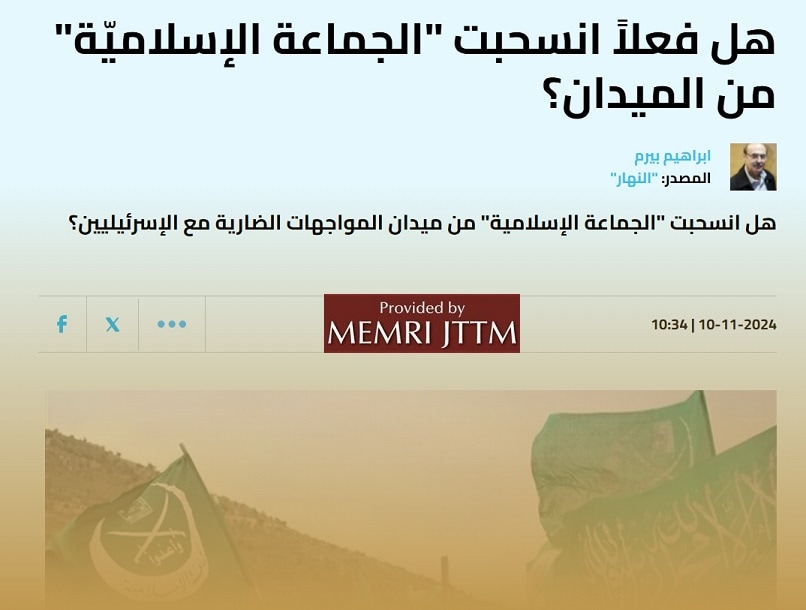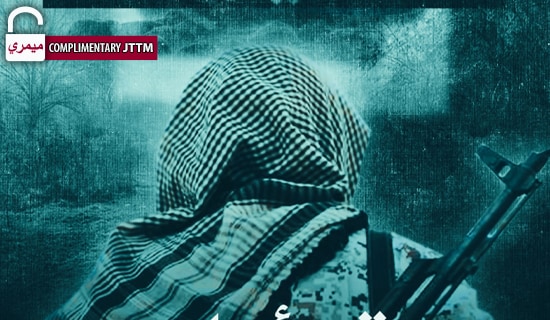The following report is now a complimentary offering from MEMRI's Jihad and Terrorism Threat Monitor (JTTM). For JTTM subscription information, click here.
A Lebanese daily reported that the Muslim Brotherhood-affiliated Jama'ah Islamiyah (JI) and its armed wing, the Al-Fajr Forces, have withdrawn from fighting in Lebanon for over four months.
Jama'ah Islamiyah Withdraws From Military Operations After "Providing A Sunni Cover For Hizbullah"
The Lebanese Daily, Al-Nahar, reported in an article published on November 11, 2024 that JI and its armed wing, Al-Fajr Forces, have withdrawn from fighting in Lebanon under threat of Israeli attack.[1] JI is a Lebanese affiliate of the Muslim Brotherhood.
The article opened: "For more than four months, the name of the religious-political organization, which is one of the branches of the 'Muslim Brotherhood,' has been absent from any happenings or developments in the field [of battle], whether in the south or in Beqa'a, especially after confrontations flared up as a result of Israeli land operations over four months ago." "The name of JI] has also begun to disappear from the media," it added.
According to the article, JI leadership has "successively and quietly" fled to Turkey over several months since the group decided to evacuate its headquarters in Beirut's Zaydanieh neighborhood under threat of Israeli bombardment.
Al-Nahar also noted that while JI's armed wing, Al-Fajr Forces, was militarily involved in clashes with Israel in south Lebanon at the outset of the land operation, it did so primarily to "provide a Sunni cover for Hizbullah." JI was also reportedly forced to engage with "Christian political parties, forces, and clerics" in order to justify its participation in the confrontation and to differentiate itself from Hizbullah with respect to its "approaches, views, and internal behaviors."
However, the article reported that JI at some point realized that participating in the confrontation proved to be costly for the organization, especially after a series of Israeli assassinations targeting its leadership and in particular those leaders who had relations with Hamas. "The group has lost around 40 of its operatives," it said continuing, "Four of whom were [killed] at once while they were accompanying Hamas commander Saleh Al-Arouri, who was assassinated in the southern Dhahiyah [neighborhood]."
In conclusion, Al-Nahar noted that JI is now operating on the principle of "self-preservation" – and thereby withdrawing from battle – believing that it has done its duty by participating in the initial stage of the confrontation with Israel.

The full text of this post is available to subscribers.
Please login or register to request subscription information from MEMRI









